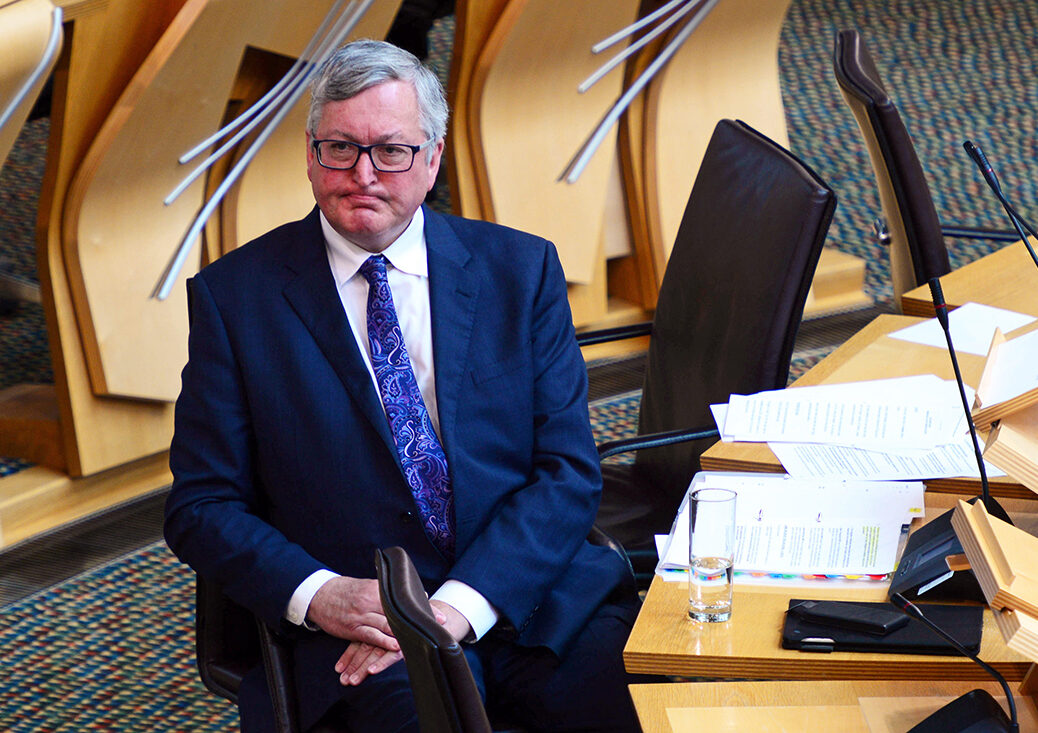
If anyone entertained doubts that the divisions in the SNP are real, ongoing and significant, the suspension of Fergus Ewing from the MSP group at Holyrood should end them.
Ewing, 66, is Nat royalty – his late mother, Winnie Ewing, was a pioneering MP and MEP, his late wife, Margaret, an MP and MSP, and his sister Annabelle is deputy presiding officer. He has been MSP for Inverness since Holyrood was founded in 1999. But he is also more than that. He is a symbol of what the SNP has left behind in its journey to a left-wing, urban, central-belt identity under a leadership that demands and expects total loyalty.
Rather than get with the programme, Ewing has remained stubbornly independent in his words and actions. He belongs to a wing of the SNP that goes back decades – socially conservative and economically liberal, he voted against same-sex marriage and the ban on fox hunting, and abstained in the vote to abolish Section 28. He is pro-business, backs the oil and gas industry, and has been a fierce critic of the governing coalition with the Scottish Greens. In recent months he has spoken out repeatedly against the government, voting for a 12-month delay to a short-term lets licensing scheme, and opposing the Gender Recognition Reform Bill. He also backed a no-confidence vote in the Green minister Lorna Slater following her bungled handling of the deposit return scheme.
Now a majority of his colleagues have had enough of these rebellions. In a meeting at Holyrood on Wednesday night, 48 of them voted to suspend Ewing for one week due to his behaviour. Nine voted against the motion and four abstained. Neither Humza Yousaf, the First Minister, who was said to be ill, nor Nicola Sturgeon were present.
Most SNP MSPs will always do exactly what they are told by party bosses, and did. What’s interesting is who didn’t. The suspension was opposed by Kate Forbes, Yousaf’s past rival for the leadership, who shares some of Ewing’s instincts and is a fellow Highland MSP. Michelle Thomson, an ally of Forbes, also backed Ewing.
Following the suspension, Ewing, flanked by Forbes and his sister Annabelle, criticised the SNP as a party that “no longer puts Scotland first. In good conscience, I do not believe that is any longer the case.”
With a general election next year and a Holyrood election in 2026, the SNP has good cause to be worried about its electoral future, not least in the areas represented by MSPs such as Ewing and Forbes. The government was forced to scrap plans to introduce a ban on fishing in 10 per cent of Scottish waters, which proved deeply unpopular in coastal communities. It has been accused of losing touch with the kind of rural constituencies that were once its heartlands. “I never thought I would reach a stage where there was a conflict between my party and my constituency,” Ewing said.
A more confident party would have shrugged off Ewing’s rebellions, insisting it would “let Fergus be Fergus”. Instead, his suspension only widens the gulfs that exist, and adds to a sense that the SNP leadership is touchy, twitchy and, with good reason, nervous about what the near future holds.
[See also: Scotland’s stand against misogyny is an example to others]





